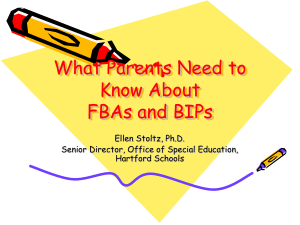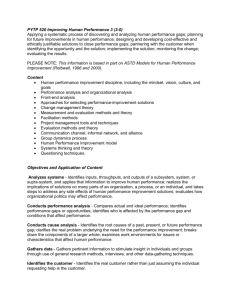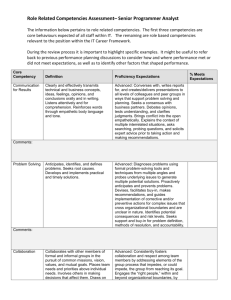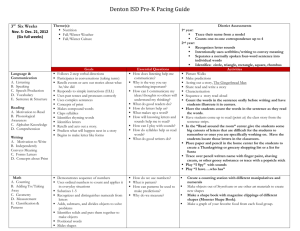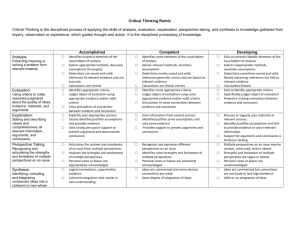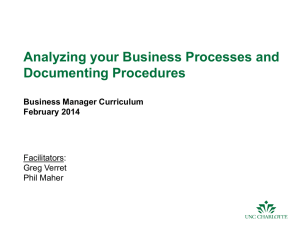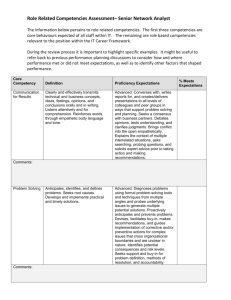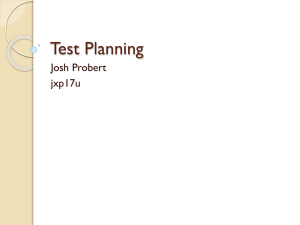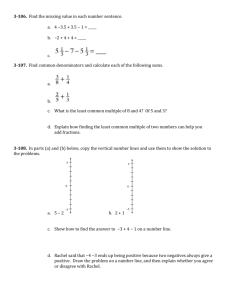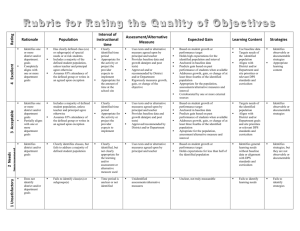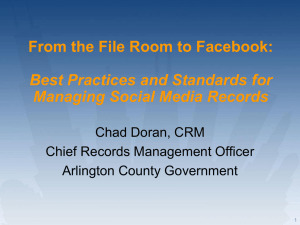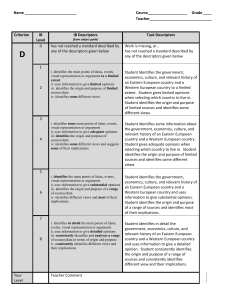Greek God & Goddess Yearbook Assessment Imagine that you are
advertisement
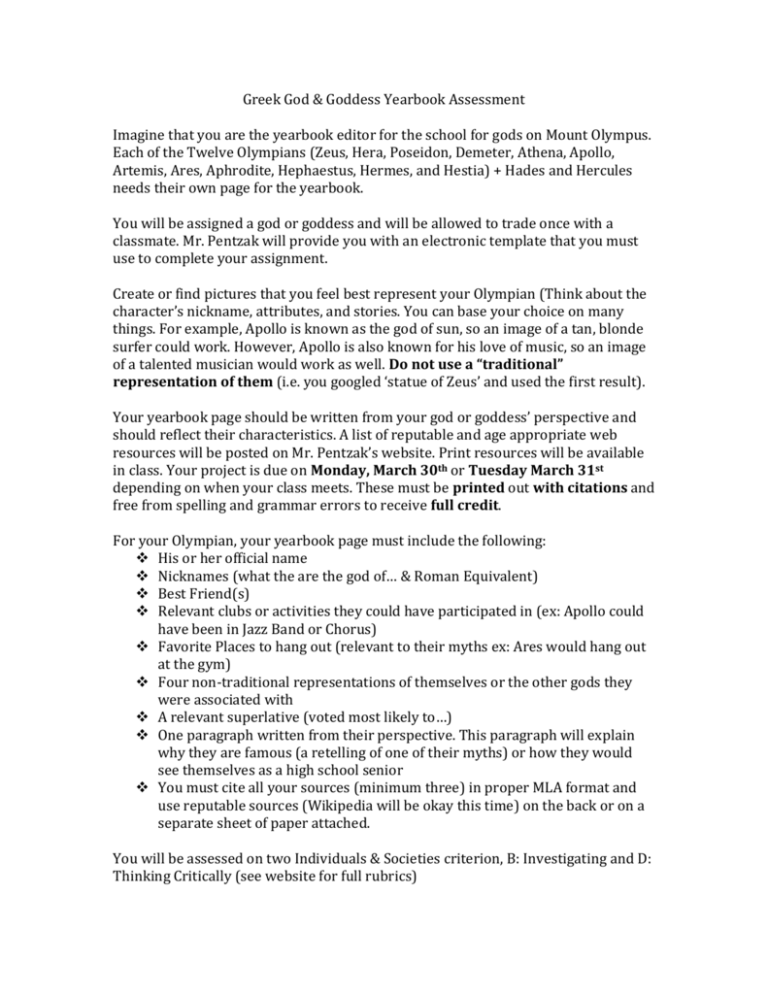
Greek God & Goddess Yearbook Assessment Imagine that you are the yearbook editor for the school for gods on Mount Olympus. Each of the Twelve Olympians (Zeus, Hera, Poseidon, Demeter, Athena, Apollo, Artemis, Ares, Aphrodite, Hephaestus, Hermes, and Hestia) + Hades and Hercules needs their own page for the yearbook. You will be assigned a god or goddess and will be allowed to trade once with a classmate. Mr. Pentzak will provide you with an electronic template that you must use to complete your assignment. Create or find pictures that you feel best represent your Olympian (Think about the character’s nickname, attributes, and stories. You can base your choice on many things. For example, Apollo is known as the god of sun, so an image of a tan, blonde surfer could work. However, Apollo is also known for his love of music, so an image of a talented musician would work as well. Do not use a “traditional” representation of them (i.e. you googled ‘statue of Zeus’ and used the first result). Your yearbook page should be written from your god or goddess’ perspective and should reflect their characteristics. A list of reputable and age appropriate web resources will be posted on Mr. Pentzak’s website. Print resources will be available in class. Your project is due on Monday, March 30th or Tuesday March 31st depending on when your class meets. These must be printed out with citations and free from spelling and grammar errors to receive full credit. For your Olympian, your yearbook page must include the following: His or her official name Nicknames (what the are the god of… & Roman Equivalent) Best Friend(s) Relevant clubs or activities they could have participated in (ex: Apollo could have been in Jazz Band or Chorus) Favorite Places to hang out (relevant to their myths ex: Ares would hang out at the gym) Four non-traditional representations of themselves or the other gods they were associated with A relevant superlative (voted most likely to…) One paragraph written from their perspective. This paragraph will explain why they are famous (a retelling of one of their myths) or how they would see themselves as a high school senior You must cite all your sources (minimum three) in proper MLA format and use reputable sources (Wikipedia will be okay this time) on the back or on a separate sheet of paper attached. You will be assessed on two Individuals & Societies criterion, B: Investigating and D: Thinking Critically (see website for full rubrics) Achievement Level 0 1-2 3-4 5-6 7-8 Criterion B: Investigating The student does not reach a standard described by any of the descriptors below The student: i. identifies a research question ii. follows an action plan in a limited way to explore a research question iii. collects and records information, to a limited extent iv. with guidance, reflects on the research process and results, to a limited extent. The student: i. describes the choice of a research question ii. partially follows an action plan to explore a research question iii. uses a method or methods to collect and record some relevant information iv. with guidance, reflects on the research process and results with some depth. The student: i. describes the choice of a research question in detail ii. mostly follows an action plan to explore a research question iii. uses method(s) to collect and record often relevant information iv. reflects on the research process and results. The student: i. explains the choice of a research question ii. effectively follows an action plan to explore a research question iii. uses methods to collect and record consistently relevant information iv. thoroughly reflects on the research process and results. Criterion D: Thinking Critically The student does not reach a standard described by any of the descriptors below The student: i. identifies the main points of ideas, events, visual representation or arguments to a limited extent ii. uses information to give limited opinions iii. identifies the origin and purpose of limited sources/data iv. identifies some different views. The student: i. identifies some main points of ideas, events, visual representation or arguments ii. uses information to give adequate opinions iii. identifies the origin and purpose of sources/data iv. identifies some different views and suggests some of their implications. The student: i. identifies the main points of ideas, events, visual representation or arguments ii. uses information to give substantial opinions iii. identifies the origin and purpose of a range of sources/data iv. identifies different views and most of their implications. The student: i. identifies in detail the main points of ideas, events, visual representation or arguments ii. uses information to give detailed opinions iii. consistently identifies and analyses a range of sources/data in terms of origin and purpose iv. consistently identifies different views and their implications
